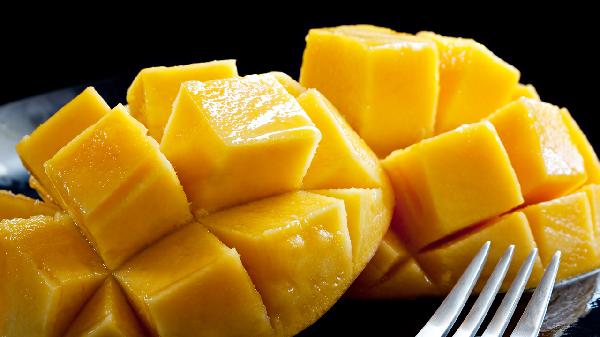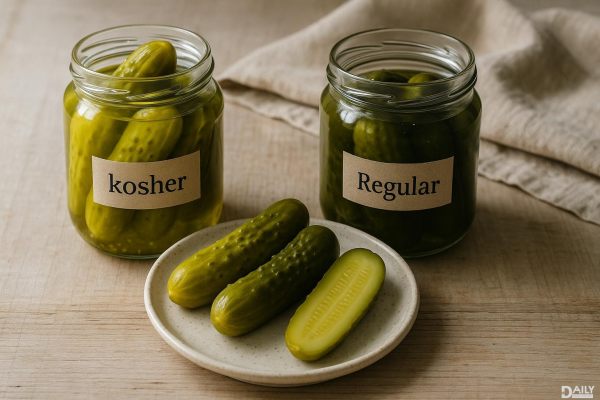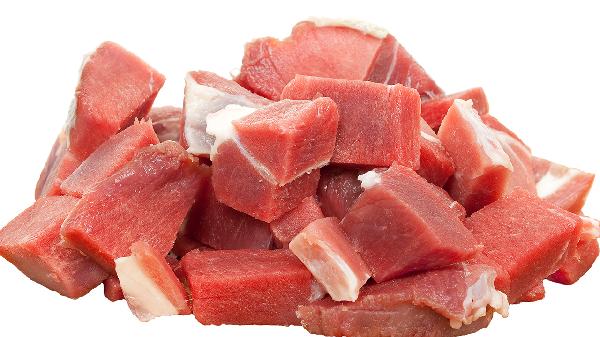Mango is a common fresh fruit in our daily life, known for its sweet and fragrant taste. Milk is also a daily essential for many. So, can these two be consumed together? Normally, mango should not be eaten with certain insomnia-inducing foods. What are the benefits of mango? Let's dive in and find out more.

Can Mango and Milk Be Eaten Together?
Yes, they generally can be consumed together. However, individuals with allergic tendencies should avoid eating mango. Although mango is rich in vitamins and considered a premium fruit, those with a history of allergies should steer clear of it. Particularly, people who have previously experienced mango allergies should avoid it to prevent allergic reactions.
What Should Not Be Eaten with Mango?
1. Mango and Alcohol:
Both mango and alcohol are spicy foods that can harm kidney function.
2. Mango and Seafood:
Both mango and seafood are difficult to digest and are prone to causing allergies. Eating them together increases the risk of allergic reactions.
3. Mango and Garlic or Other Pungent Foods:
Mango contains a large amount of salicylic acid, amino acids, and proteins, which are irritating substances. Contact with the skin can cause allergic reactions, and in severe cases, redness and pain may occur.
4. Mango and Pineapple:
Consuming these two fruits together can easily trigger allergies. Mango and pineapple themselves contain components that cause allergic reactions. Raw mango contains single or double methylbenzene, and unripe mango also contains aldehyde acid, which can irritate mucous membranes, causing swelling, itching, and pain of the lips, and in severe cases, blisters and sores. Pineapple contains glycosides and bromelain, which can have side effects on the skin and blood vessels, often causing rapid allergic reactions such as itching, flushing, excessive sweating, and numbness in the limbs and corners of the mouth.
Benefits of Mango
1. Anti-Nausea:
Friends with nausea can eat some mango, as it contains antiemetic substances that can help with motion sickness and vomiting.
2. Anti-Cancer:
According to modern dietary therapy, mango contains a large amount of vitamin A, which has anti-cancer and cancer-preventing effects.
3. Skin Cleansing:
Due to its high vitamin content, regular consumption of mango can nourish the skin.
4. Preventing Hypertension and Arteriosclerosis:
Mango contains trace elements, vitamin C, and minerals, which not only have anti-cancer properties but also help prevent arteriosclerosis and hypertension.
5. Preventing Constipation:
Local mangoes contain a lot of fiber, which aids digestion and helps prevent constipation.
6. Antibacterial and Anti-Inflammatory:
Unripe mangoes, as well as the bark and stems of the mango tree, can inhibit the growth of purulent bacteria and E. coli. Extracts from mango leaves also have similar effects and can treat skin and digestive infections.
7. Cough Relief:
The mango glycosides in mango have expectorant properties and can help with coughs and asthma.
8. Lowering Cholesterol and Triglycerides:
Mangoes contain higher levels of vitamin C compared to other fruits. Even after heating and processing, the vitamin C content remains. Regular consumption can supplement vitamin C, lower cholesterol and triglycerides, and help prevent cardiovascular diseases.
9. Improving Vision:
Mangoes are rich in sugars and vitamins, particularly vitamin A, which ranks first among fruits, and is beneficial for eye health.
Precautions When Consuming Mango:
According to traditional Chinese medicine, mango is a neutral, sweet fruit that quenches thirst and promotes fluid production. Eating it raw can relieve nausea and motion sickness, similar to sour plums. For those who are not used to traveling by boat and feel chest discomfort due to motion, mango can serve as a "medicine." Pregnant women experiencing nausea can eat mango flesh or drink mango-infused water. The only thing to note is that mango has a damp nature, and those with skin diseases or tumors should avoid it.
"Dampness" is one of the six pathogenic factors in traditional Chinese medicine. Skin diseases like eczema and festering sores, gynecological issues like leucorrhea, and internal diseases like edema and athlete's foot are all related to "dampness." People with a damp constitution eating damp-poisonous foods like mango may worsen their condition. On the other hand, some people worry that mango can increase acne, but this concern is somewhat exaggerated.
Friendly Reminder:
Although mango is rich in vitamins, those with a history of allergies should try to avoid it. Especially those who have previously experienced mango allergies should not eat it to prevent allergic reactions.
When eating mango, try not to touch the area around the mouth and swallow it directly to be safer. Wash your hands after handling mango juice. Also, avoid eating the aforementioned foods when consuming mango.
Conclusion:
Through this article, we understand that people without allergic tendencies can generally consume mango and milk together. However, mango should not be eaten in excess, as it can easily cause allergies, leading to redness and pain in severe cases. Mango should not be eaten with spicy foods since it contains irritating substances.
























